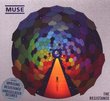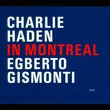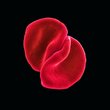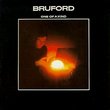| All Artists: Bill Bruford Title: If Summer Had Its Ghosts Members Wishing: 3 Total Copies: 0 Label: Summerfold UK Release Date: 2/28/2005 Album Type: Import Genres: Jazz, Pop, Rock Styles: Avant Garde & Free Jazz, Jazz Fusion, Progressive, Progressive Rock Number of Discs: 2 SwapaCD Credits: 2 UPC: 604388644322 |
Search - Bill Bruford :: If Summer Had Its Ghosts
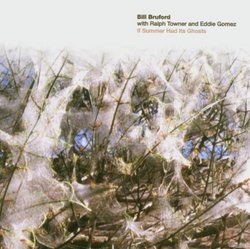 | Bill Bruford If Summer Had Its Ghosts Genres: Jazz, Pop, Rock
Bill Bruford grew up with jazz. As an amateur drummer in the 1960s, and after a handful of lessons from Lou Pocock of the Royal Philharmonic Orchestra, he began his professional career in 1968. He was a guiding light in th... more » |
Larger Image |
CD DetailsSynopsis
Album Description Bill Bruford grew up with jazz. As an amateur drummer in the 1960s, and after a handful of lessons from Lou Pocock of the Royal Philharmonic Orchestra, he began his professional career in 1968. He was a guiding light in the so-called British "Art Rock" movement, touring internationally with Yes and King Crimson from 1968-74. There then followed several years spent observing and participating in the music making processes of, among others, Gong, National Health, Genesis and U.K., until Bill felt ready to write and perform his own music with his own band Bruford, recording four albums from 1977-80. It was, however, the reconstituted King Crimson of 1980-84 that provided the vehicle for his revolutionary use of electronics in developing the melodic side of percussion. Following an interim two year/two album stint improvising on acoustic piano and drums with Patrick Moraz, Bruford formed his electro-acoustic jazz group Earthworks in 1986, with Django Bates and Iain Ballamy, specifically to continue this work on melody from the drum set, but now in a jazz context. Earthworks, the group's first offering in 1987, was named the "third best jazz album of the year" by America's USA Today; then came Dig? (1989), All Heaven Broke Loose (1991), and the summer 1994 Live set, Stamping Ground. 1990, the readers of Modern Drummer Magazine voted him into that magazine's Hall of Fame. The late 90s saw Bruford underlining his commitment, and return, to jazz and 1997 saw two major releases. The Earthworks "best of" compilation, Heavenly Bodies, taken from all four albums and including previously unreleased material was released. Similar CDs
|
CD ReviewsActually..... Christopher Siebold | Chicago, IL USA | 02/04/2007 (5 out of 5 stars) "Bill is not showing mediocrity-far from it. He is showing maturity. This CD features the enormous talents of Ralph Towner and Eddie Gomez. If you do not like the genre, that is one thing. But writing off the efforts of three of the world's finest musicians is very silly to me. For example, if you want to learn how to play a ballad, one of the hardest musical forms to master, listen to "Forgiveness". Very insightful. Sure, Bill trims it down a bit, but good for him! I believe the playing on this album shows that musicians can grow and stretch when they restrain themselves from doing what they're expected to do. Just a thought."
|

 Track Listings (11) - Disc #1
Track Listings (11) - Disc #1